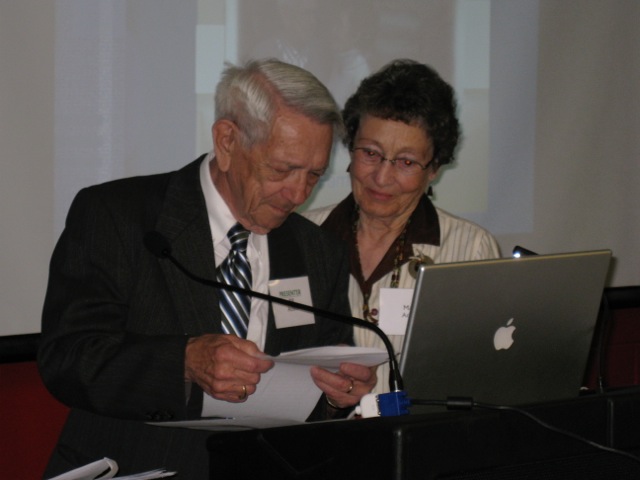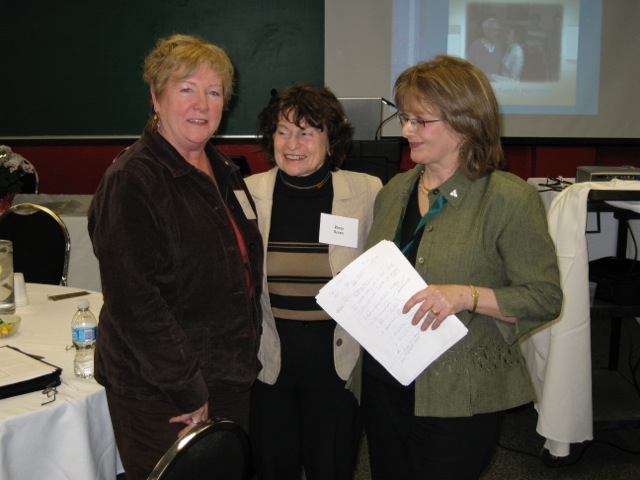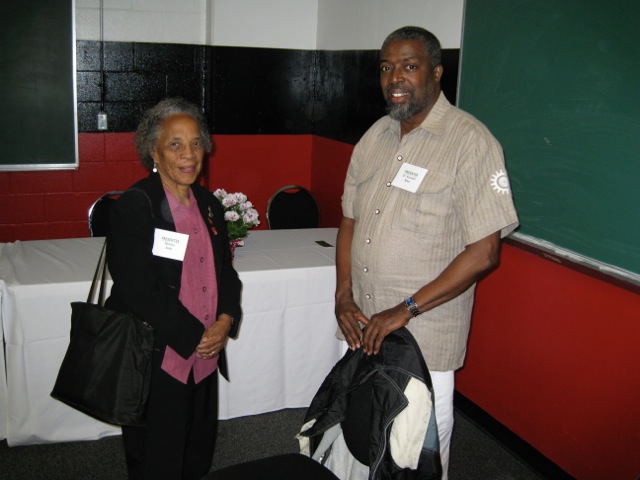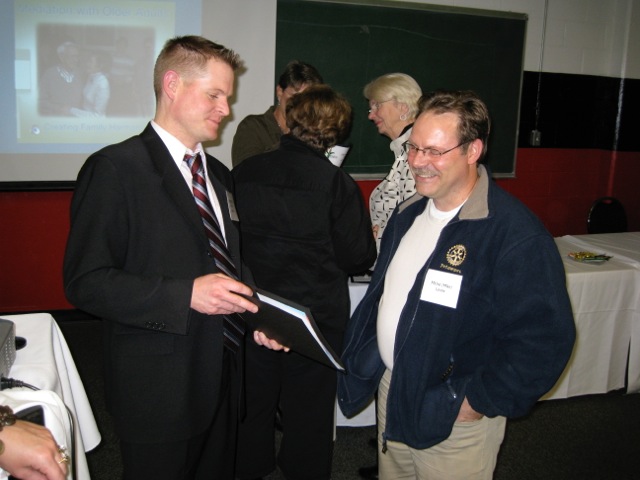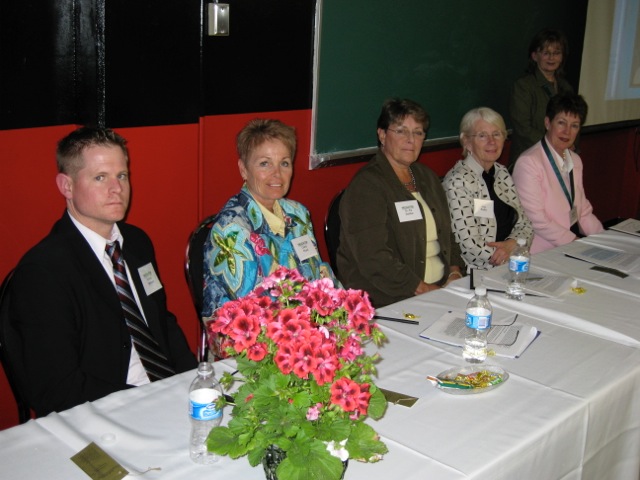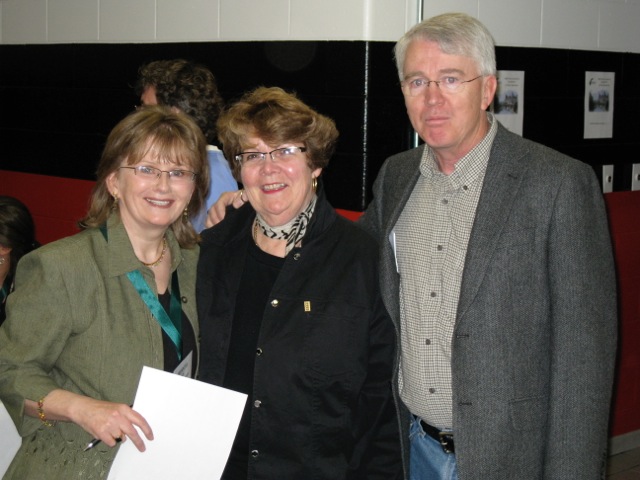A very successful First World Summit & Symposium on Elder Mediation was held in Ottawa, Canada in May 2008. This inaugural event connected seventy-nine pioneers from eleven countries – mediators, lawyers, social workers, physicians, health care professionals, volunteers, family members, caregivers, academics, students, service clubs and professionals practicing elder mediation or considering entering this new field of practice – who came together to share their knowledge, vision and questions. (It was interesting to note that Dr. Ken Niles and Norma Inniss both from Trinidad and both interested in Elder Mediation met for the first time at the Ottawa Summit!)
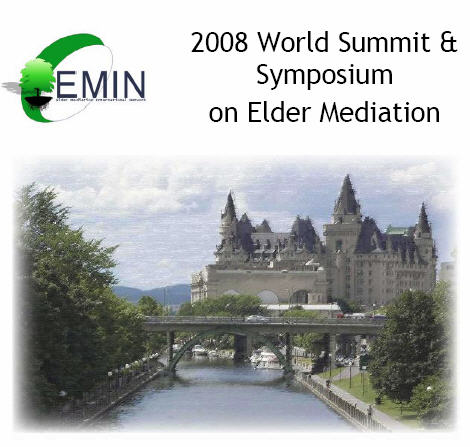 Lions and Rotary representatives offered to promote elder mediation to their vast membership across the world. King Lion George Vail encouraged Elder mediators to offer to present information at their Local Lions Clubs and bring all Lions up to date on this important service. Attendees called on physicians and governments to become aware of the importance of elder mediation. Family members who spoke at the Summit urged the membership to recognize elder mediation as a distinct and separate discipline. Attendees at the summit further committed to building a strong and effective association.
Lions and Rotary representatives offered to promote elder mediation to their vast membership across the world. King Lion George Vail encouraged Elder mediators to offer to present information at their Local Lions Clubs and bring all Lions up to date on this important service. Attendees called on physicians and governments to become aware of the importance of elder mediation. Family members who spoke at the Summit urged the membership to recognize elder mediation as a distinct and separate discipline. Attendees at the summit further committed to building a strong and effective association.
The Summit was an excellent example of partnership in action. The Ontario Association for Family Mediation stepped in at the eleventh hour to assist in registrations, Family Mediation Canada, the Alzheimer Society, the Alzheimer Foundation, Carleton University, The Centre for Social Gerontology, The PEI Geriatrician Program, Mediation PEI INC, Commission on Accreditation of Rehabilitation Facilities, Seniors Councils, Music Therapy Association, Long Term Care homes, Canadian Association of Retired Persons, Lions Clubs, Rotary International, as well as a host of others all supported the Summit in one way or another.
Participants and presenters alike spoke of the importance of ensuring that information and presentations related to elder mediation need to be added to national and international agendas. They expressed the ethical responsibility for all stakeholders including physicians, specialists, governments who work with age related issues on a daily basis to become aware of the importance of this service, of advocating for standards and to the importance of informing the public about this valuable service. Success stories from Eastern Canada were highlighted with three families telling their mediation experiences and reminding mediators how critical it is to be informed about age related issues and chronic diseases.
There is a strong network of mediators interested in working toward a certification process. An immediate outcome of the inaugural summit was the establishment of a pilot certification launched in October 2008. The certification process ensures credibility, consistency, and standardized practice for mediators offering services to older people. The response of Summit attendees on the pilot program included:
- I want to be part of the first team of certified elder mediators.
- Please keep up the certification specialty.
- A standard, if nothing else, will keep us more conscious of what we are doing and the importance of this work.
- The certification piece was the most important talk for me. I believe we need a standard and I want to be a part of this.
- Thanks to the team for visioning the certification and moving ahead.
- The certification process is very important.
- I would like to see a requirement for knowledge in the areas of chronic disease that affects older adults and systems (healthcare) barriers. These are fundamental components.
- My career has been based in geriatrics. Certification is extremely important and will go a long ways to prevent the “do no harm” responsibility.
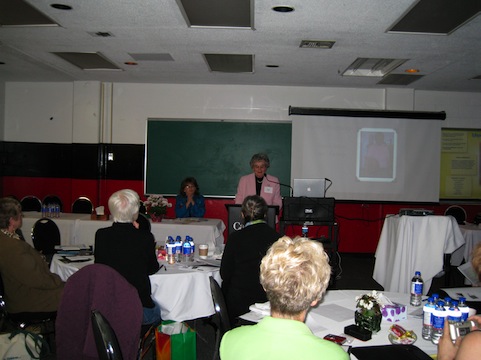 Another strong message from the Summit is that elder mediation should be an integral component of all provincial and state/country “healthy aging” strategies. Elder Mediation International Network and Elder Mediation Canada were encourage to initiate a public education campaign to educate all people of the value of mediation to families as they address the difficult issues of aging. They were further challenged to identify champion organizations throughout provinces, states, and countries and create a database of practitioners across the world. A website and creation of a viable organization for the long term was encouraged.
Another strong message from the Summit is that elder mediation should be an integral component of all provincial and state/country “healthy aging” strategies. Elder Mediation International Network and Elder Mediation Canada were encourage to initiate a public education campaign to educate all people of the value of mediation to families as they address the difficult issues of aging. They were further challenged to identify champion organizations throughout provinces, states, and countries and create a database of practitioners across the world. A website and creation of a viable organization for the long term was encouraged.
The Alzheimer Society was highlighted during the Summit for its leadership since 1991 in promoting mediation as a strategy to reduce conflict in health issues and other issues of aging. This not for profit agency offers mediation as a core service, something that could be replicated by likeminded client centered services across the world. President Lynn Loftus and Board Member, Elizabeth Reagh who is herself an elder mediator and lawyer, reminded attendees that it is an ethical responsibility to inform families about mediation and to advocate for trained mediators who aspire to credible, consistent standards. They have taken on a personal challenge of advocating and supporting the need for certification – not only in Canada – but across the world. The seed has been planted and the Elder Mediation International Network will meet again in Dublin in June 2009.
Mrs. Pat Mutch addresses delegates at the inaugural summit in Ottawa.

